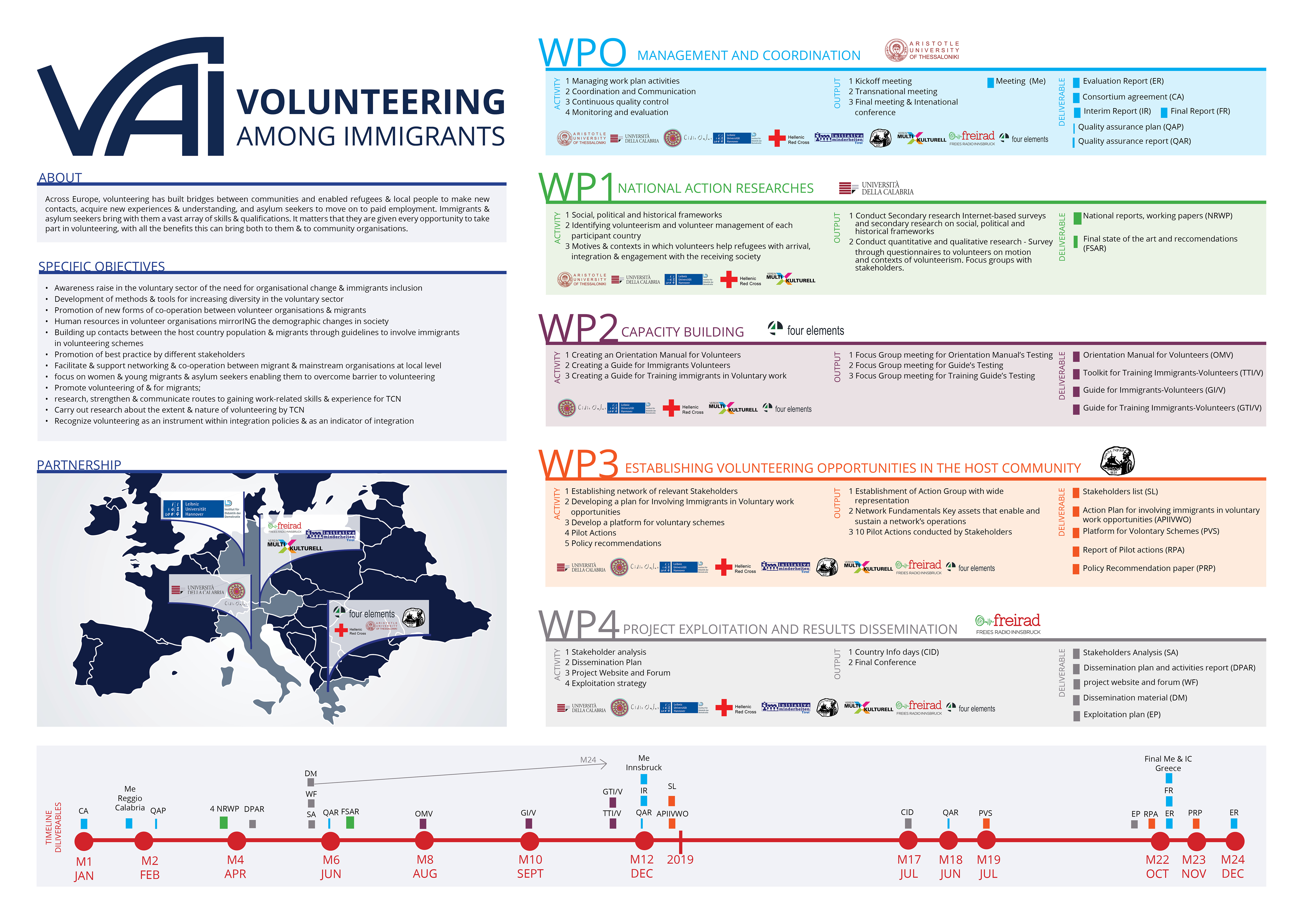National researches on volunteering
The aim of this activity is to investigate volunteerism and volunteer management, based on exploratory case studies of each participant country. Our researches strive to examine the reasons why people volunteer and why they keep doing so in the context of immigrants’ issue independently as well as through NGOs/charitable Organisation. Finally it searches to understand the benefits and costs of volunteering. Research on volunteering will include immigrants that will help to identify existing areas of best practice. If volunteering for migrants is to be promoted by targeted policies we need to know why migrants do (or more importantly do NOT) volunteer, what kind of action fosters a better involvement of different nationalities in volunteering and how this involvement impacts on integration. The study asks what the solidarity with refugees is based on and how it is translated into active support. Which role do social, political and historical frameworks play? It is expected that with the finalisation of the researches there will be a valuable exchange of knowledge between partners on volunteerism, volunteer management motion and contexts of volunteerism.
Capacity Building in the host community
This part of the project intends to help immigrants, as either a current or potential volunteer, to construct and identify themselves as both immigrants and volunteers and to help NGOs or other organisations engage immigrants in their volunteer’s corps. At the long run the aims are:
- Developing recruitment strategies targeted to program recipients
- Developing opportunities for program recipients to take on new, more responsible roles (leadership, coordination, etc.) through their service activities
- Creating training opportunities and curricula for program recipients
- Help program recipients organize service days and other events and projects in their communities
- Help program recipients demonstrate the impact and value of their work to the community
This may also be one of the most effective strategies for recruiting more volunteers. Finally, the most important expected outcome of this activity is to enhance participation in voluntary groups. During this part of the project an Orientation Manual for Volunteers, a Guide for Immigrant Volunteers and a Guide for the Training of immigrants in voluntary work will be created in close cooperation with relevant organisations and stakeholders.
Establishing volunteering opportunities
The objective here is to encourage good practice in the volunteering sector and to support immigrants in volunteering with longer-term commitment and development potential. In this phase, the project will pursue different activities to establish opportunities for TCN’s to volunteer in their respective host communities. Among others, a network of relevant actors in the field of volunteering will be set up and a plan for involving immigrants in voluntary work opportunities will be developed. In order to involve local stakeholders, four types of Pilot Actions will be developed and ten such actions will be carried out by project partners, the results of which will inform a set of policy recommendations.
Overview




